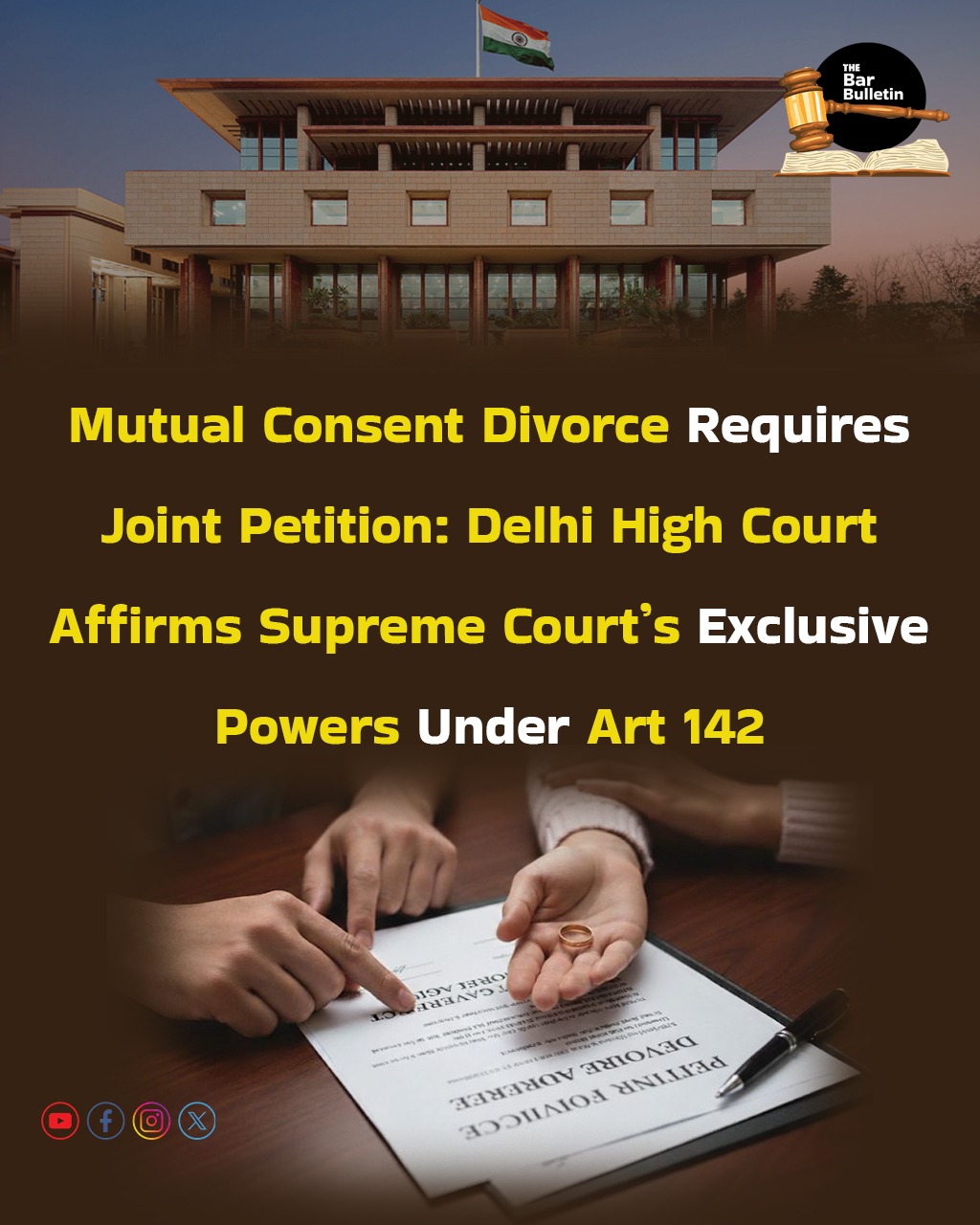The Delhi High Court, on September 24, 2025, set aside an order of the Family Court of Patiala House Courts, Delhi, which had granted a mutual divorce to the parties under Section 13B of the Hindu Marriage Act, 1955. The Division Bench of Justices Anil Kshetarpal and Harish Vaidyanathan Shankar stated that the Family Court had acted beyond its jurisdiction in converting contested proceedings into a mutual divorce, a power vested only with the Supreme Court under Article 142.
The case arose in February 2019, when the husband filed for a divorce under Section 13(1)(ia) of the Hindu Marriage Act, seeking divorce on the ground of cruelty. A few months later, in June 2019, the wife too filed for a divorce alleging adultery and cruelty, and also impleaded the alleged adulterer as respondent no. 2. The Family Court framed issues of both petitions on 08.12.2022, and after evidence was recorded, it clubbed the matters for final hearing. However, instead of deciding the petitions on their merits, the Family Court, by judgment dated 18.07.2024, dissolved the marriage suo motu under Section 13B of the Act, even though there was no joint petition or motion under that provision. The wife argued that the Family Court had acted illegally by turning a contested divorce under Section 13 into a mutual consent divorce under Section 13B. She pointed out that the law requires both parties to file a joint petition, appear again for a second motion, and maintain their consent right up to the passing of the final decree.The husband countered by highlighting their long separation, the clear intention of both sides to end the marriage, and the failure of reconciliation attempts. He argued that these factors showed enough compliance with Section 13B and that the Family Court acted with flexibility under Sections 10(3) and 20 of the Family Courts Act 1984.
The Court held that the Family Court committed grave illegality by converting two independent, fault-based petitions under Section 13 of the HMA, 1955, into a petition for mutual consent divorce under Section 13B. It reiterated that Section 13B requires a pre-existing, voluntary agreement between the spouses at the time of filing, which must continue until the decree is passed. The Family Court’s attempt to conclude consent from long separation, inability to live together, or separate petitions was legally unsustainable. The Court emphasized that only the Supreme Court, under its extraordinary powers under Article 142, can convert contested proceedings into mutual consent divorce as reaffirmed in Anil Kumar Jain v. Maya Jain and Sureshta Devi v. Om Prakash (1991) 2 SCC 25. Accordingly the appeal was allowed by the Court, the Family Court’s judgment and decree were set aside, and the matter was restored for fresh adjudication. No order as to costs was made.
Appearances:
For the Appellant : Advs. Ms. Nandini Sen & Mr. Basab Sengupta
For the Respondent : Advs. Ms. Gauri Gupta & Mr. Rishabh Kumar Jain

